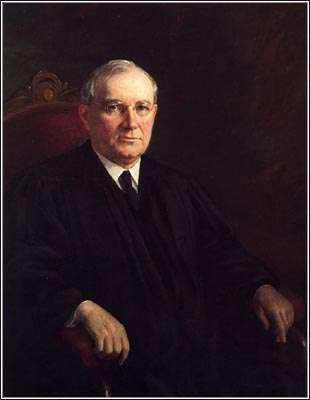When Donald Trump nominated Neil Gorsuch to the Supreme Court in January 2017, Demand Progress warned that the judge was “an extremist” who would “rubber stamp Trump’s assaults on Americans’ freedoms.” People for the American Way likewise described Gorsuch as “an ideological warrior who puts his own right-wing politics above the Constitution, the law and the rights of everyday people.” During Gorsuch’s confirmation hearings that March, Sen. Mazie Hirono (D–Hawaii) worried that “you rarely seem to find in favor of the little guy.”
Even before Gorsuch heard his first case as a Supreme Court justice in April 2017, it was clear from his decade on the U.S. Court of Appeals for the 10th Circuit that such attacks were unwarranted. Far from screwing over “the little guy” at every opportunity, he had shown unusual sensitivity to the predicament of vulnerable people confronted by implacable and frequently inscrutable agents of the state. “Among the folks that Trump had on his short list,” observes the Ohio State University law professor Douglas Berman, “Gorsuch seemed more defendant-friendly than most of the others,” and “that’s carried over to the Supreme Court.”
During Gorsuch’s first two terms on the Court, he took positions that should be applauded by people who care about criminal justice and civil liberties, including the critics who were so quick to condemn him as a heartless authoritarian. Except for capital cases, where “he doesn’t seem to have much of an affinity for the defense position,” Berman says, Gorsuch is “distinctly concerned about safeguarding defendants’ procedural rights.” While judges across the spectrum have long been willing to compromise civil liberties in cases involving unpopular defendants such as drug dealers and sex offenders, Berman notes, “Gorsuch has, to his credit, said, ‘No, no. The rules are the rules.'” His work shows that an honest attempt to apply the “original public understanding” of constitutional provisions frequently yields libertarian results, limiting government power and protecting individual rights.
That’s not to say Gorsuch himself is a libertarian. In his 2006 book on assisted suicide, he explicitly rejected the “libertarian principle” that would require legalization of that practice. The same principle, he argued, would also require the government to allow “any act of consensual homicide,” including “sadomasochist killings, mass suicide pacts…duels, and the sale of one’s life (not to mention the use of now illicit drugs, prostitution, or the sale of one’s organs).” If the government lets people kill themselves, in other words, it might also have to let them smoke pot.
Nor do Gorsuch’s originalist methods always lead him to conclusions that libertarians like. Last June, for instance, the Supreme Court overturned a Tennessee law that required people to live in the state for at least two years before applying for a license to sell liquor. Seven members of the Court deemed that protectionist policy inconsistent with the Commerce Clause, which was supposed to prevent interstate trade barriers. Gorsuch—joined by Justice Clarence Thomas, another originalist—dissented, arguing that such residence requirements have a long history in the United States and exemplify the sort of state policies that were protected by federal statute before Prohibition and by the 21st Amendment afterward.
On the whole, however, “Gorsuch appears to be on his way to being the most libertarian justice we’ve had on the Court in some time,” says Case Western Reserve University law professor and Volokh Conspiracy blogger Jonathan Adler. And on several issues that progressives in particular care about, such as privacy, due process, and police abuse, Gorsuch has been notably less deferential than the other conservative justices, with whom he has repeatedly parted company. “He’s someone who takes express constitutional guarantees very seriously,” Adler says, “even where they might conflict with what we would expect a conservative to want.”
For the president’s opponents, “But Gorsuch!” is a gibe aimed at conservatives who cite the nomination as vindication of their support for Trump. But for libertarians, there is an element of truth to that line of defense: While Gorsuch may not be the saving grace of the Trump administration, he is far more inclined to question authority and defend “the rights of everyday people” than the man who picked him.
‘What’s Left of the Fourth Amendment?’
Gorsuch’s commitment to enforcing the Fourth Amendment’s ban on “unreasonable searches and seizures” is one of the clearest ways in which his record belies progressives’ claims that he tends to approve “assaults on Americans’ freedoms.”
On the 10th Circuit, Gorsuch wrote the majority opinion in the 2016 case United States v. Ackerman, which held that the National Center for Missing and Exploited Children conducted a search within the meaning of the Fourth Amendment, which generally requires a warrant, when it opened an email forwarded by AOL that contained child pornography. He concluded that the organization, which has special duties and privileges under federal law, qualified as a “governmental actor,” or at least the government’s agent. Just as important, he thought it clear that email should be treated as “papers” or “effects” protected by the Fourth Amendment.
“Of course, the framers were concerned with the protection of physical rather than virtual correspondence,” Gorsuch wrote. “But a more obvious analogy from principle to new technology is hard to imagine and, indeed, many courts have already applied the common law’s ancient trespass to chattels doctrine to electronic, not just written, communications.”
Also in 2016, Gorsuch dissented from the 10th Circuit’s decision in United States v. Carloss, which held that police did not violate the Fourth Amendment when they ignored several “No Trespassing” signs on the way to a “knock and talk” at a home where they ultimately discovered methamphetamine labs. The government, he wrote, seemed worried that “if clearly posted No Trespassing signs can revoke the right of officers to enter a home’s curtilage, their job of ferreting out crime will become marginally more difficult.” He noted that “obedience to the Fourth Amendment always bears that cost and surely brings with it other benefits.” In any case, he said, “our job” is not “to weigh those costs and benefits but to apply the Amendment according to its terms and in light of its historical meaning.”
That is what Gorsuch thought the Supreme Court should have done in Carpenter v. United States, the 2018 decision that said police generally need a warrant to obtain cellphone location data. Gorsuch dissented, not because he disagreed with the result but because he objected to the majority’s reasoning.
The Court made an exception to the “third-party doctrine,” which says the Fourth Amendment does not apply to information that people voluntarily share with others, even when they do so with the understanding that it will be kept confidential. The majority held that, notwithstanding the third-party doctrine, people have a “reasonable expectation of privacy” in the information about their movements that cellphone companies collect while completing their calls. Gorsuch argued that both standards are misbegotten.
Amplifying the concerns raised by Justice Sonia Sotomayor in a 2012 case, Gorsuch said “the Court has never offered a persuasive justification” for the third-party doctrine, which it formulated in the 1970s. Like Sotomayor, he was dismayed by the doctrine’s implications in an age when people routinely store sensitive information on computers outside their homes.
“What’s left of the Fourth Amendment?” Gorsuch asked. “Today we use the Internet to do most everything. Smartphones make it easy to keep a calendar, correspond with friends, make calls, conduct banking, and even watch the game. Countless Internet companies maintain records about us and, increasingly, for us. Even our most private documents—those that, in other eras, we would have locked safely in a desk drawer or destroyed—now reside on third party servers.”
Nor did Gorsuch think that the “reasonable expectation test,” which derives from the 1967 case Katz v. United States, makes much sense, since it calls upon judges to determine which expectations are reasonable. “Katz has yielded an often unpredictable—and sometimes unbelievable—jurisprudence,” he wrote, citing cases in which the Court had upheld warrantless aerial surveillance of private property and warrantless rummaging through people’s trash.
Instead, Gorsuch advocated “a more traditional Fourth Amendment approach” that asks whether the thing to be searched qualifies as someone’s property. He noted that federal law treats cellphone location data as “customer proprietary network information,” which suggests the records belong to the customer and cannot be perused at will by the police.
Prove It
The Fourth Amendment is not the only area where Gorsuch has often sided with criminal defendants. Like Antonin Scalia, the justice he replaced, he is a stickler for requiring prosecutors to prove all the elements of a criminal offense.
In the 2015 case United States v. Makkar, Gorsuch wrote a 10th Circuit decision overturning the convictions of two convenience store owners who were accused of selling “incense” containing a synthetic cannabinoid. He noted that the law under which the defendants were charged, the Federal Analogue Act, required either proof that they knew they were selling a banned substance or proof that they knew the substance was “substantially similar” in its effects and in its chemical structure to a Schedule I or II drug. Prosecutors chose the latter route but did not even attempt to prove the second element, Gorsuch observed, and the jury instructions improperly relieved them of that burden.
In 2012, Gorsuch dissented when the full 10th Circuit declined to rehear a case, United States v. Games-Perez, in which a three-judge panel had rejected a defendant’s argument that he should not have been convicted of illegally possessing a firearm because he did not realize he had a felony record. Gorsuch thought that claim was plausible given what a judge had repeatedly told the defendant, Miguel Games-Perez, about the consequences of his deferred state sentence for attempted robbery. “People sit in prison because our circuit’s case law allows the government to put them there without proving a statutorily specified element of the charged crime,” Gorsuch wrote. “So Mr. Games-Perez will remain behind bars, without the opportunity to present to a jury his argument that he committed no crime at all under the law of the land.”
After joining the Supreme Court, Gorsuch further demonstrated his determination to uphold the rights of criminal defendants in cases involving the Sixth Amendment, which guarantees the right to trial by jury. This is another way in which Gorsuch has emulated Scalia, who played an important role in two landmark decisions establishing the principle that juries must determine facts that increase a defendant’s punishment beyond what would otherwise be authorized by statute. Those decisions made federal sentencing guidelines, which had previously required judges to increase penalties based on facts they determined, advisory rather than mandatory.
This year Gorsuch wrote the plurality opinion in United States v. Haymond, which involved a man who had been convicted of possessing child pornography and who, after serving more than three years in prison, was again caught with child pornography while on supervised release. That second offense, which was never considered by a jury, triggered a five-year mandatory minimum sentence. “In this case a congressional statute compelled a federal judge to send a man to prison for a minimum of five years without empaneling a jury of his peers or requiring the government to prove his guilt beyond a reasonable doubt,” Gorsuch wrote. “As applied here, we do not hesitate to hold that the statute violates the Fifth and Sixth Amendments.”
Gorsuch’s opinion was joined by three members of the Court’s liberal wing: Justices Ruth Bader Ginsburg, Sonia Sotomayor, and Elena Kagan. Justice Stephen Breyer agreed with the judgment but wrote a separate concurring opinion to express concern about the decision’s potential impact on run-of-the-mill cases in which judges send people back to prison because they have violated the terms of their supervised release. Gorsuch’s fellow conservatives vociferously dissented.
Try, Try Again
In two Sixth Amendment cases that the Court declined to hear, Gorsuch, joined by Sotomayor both times, argued that the issues presented made them worthy of review. One case, Hester v. United States, posed the question of whether facts supporting court-ordered restitution in criminal cases also need to be determined by a jury. The other, Stuart v. Alabama, involved a woman who was convicted of drunk driving based on blood testing by an analyst who never appeared in court.
Given the “decisive role” that forensic evidence often plays in criminal cases, Gorsuch said when the Court declined to hear Stuart, it is vital that defendants have a full opportunity to challenge it. “The Constitution promises every person accused of a crime the right to confront his accusers,” he wrote. “That promise was broken here.” Scalia, who in 2009 wrote a majority opinion that said a defendant had a Sixth Amendment right to question the state laboratory analysts who tested a substance they determined to be “cocaine of a certain quantity,” probably would have agreed.
One of Gorsuch’s most striking pro-defendant stands was his dissent in Gamble v. United States, a 2019 case in which the Court declined to reconsider the “dual sovereignty” exception to the Fifth Amendment’s ban on double jeopardy. According to that longstanding doctrine, serial state and federal prosecutions for the same conduct do not constitute double jeopardy because they deal with distinct offenses defined by “separate sovereigns,” even when the definitions are the same. Gamble involved a man with a felony record who was convicted and punished under both state and federal law for illegally possessing a firearm, which seven justices—all but Gorsuch and Ginsburg—deemed constitutional. The defendant was not prosecuted twice for “the same offence,” they said, because two levels of government had separately defined his behavior as a crime.
“The government identifies no evidence suggesting that the framers understood the term ‘same offence’ to bear such a lawyerly sovereign-specific meaning,” Gorsuch wrote in his dissent. To the contrary, he said, British common law, the Fifth Amendment’s history, contemporaneous legal commentary, and early court cases all indicate otherwise. “A free society does not allow its government to try the same individual for the same crime until it’s happy with the result,” he said. “Unfortunately, the Court today endorses a colossal exception to this ancient rule.”
The threat of dual prosecution grows as federal and state criminal codes expand, increasing the areas where they overlap. Gorsuch also worries about that trend, as illustrated by his dissent in Nieves v. Bartlett, a 2019 case in which the Supreme Court rejected a man’s claim that police had violated his First Amendment rights by arresting him for disorderly conduct because his opinions irked them. Most of the justices thought that claim was barred because the cops, regardless of their motivation, had probable cause to arrest the guy.
Gorsuch disagreed. “History shows that governments sometimes seek to regulate our lives finely, acutely, thoroughly, and exhaustively,” he wrote in a characteristically eloquent dissent. “In our own time and place, criminal laws have grown so exuberantly and come to cover so much previously innocent conduct that almost anyone can be arrested for something. If the state could use these laws not for their intended purposes but to silence those who voice unpopular ideas, little would be left of our First Amendment liberties, and little would separate us from the tyrannies of the past or the malignant fiefdoms of our own age.” That dissent, says Ohio State’s Berman, shows Gorsuch “is not only able but eager to notice that, basically, cops get to do whatever they want.”
‘A Vague Law Is No Law at All’
Another conspicuous theme in Gorsuch’s work is his concern about vague statutes, which violate due process because they do not give people fair notice of what the law requires. That concern was apparent in Makkar, the 10th Circuit case involving analog drugs, where Gorsuch noted that the federal law banning them raises “vagueness concerns,” since “it’s an open question…what exactly it means for chemicals to have a ‘substantially similar’ chemical structure—or effect.” The importance of fair notice also figured in United States v. Rentz, a 2015 10th Circuit case in which Gorsuch wrote the majority opinion holding that a man who fires a gun once, injuring one person and killing another, could not be charged with two counts of “using” a firearm in the course of a violent crime.
Vagueness was central to Sessions v. Dimaya, a 2018 Supreme Court case involving a legal permanent resident with two burglary convictions whom the government sought to deport as an “aggravated felon.” Under the Immigration and Nationality Act, that category included anyone who commits a “crime of violence,” defined as a felony “that, by its nature, involves a substantial risk that physical force against the person or property of another may be used in the course of committing the offense.” In 2015 the Court had concluded that similar language in the Armed Career Criminal Act was unconstitutionally vague. Five justices—the liberal wing plus Gorsuch—concluded that the same logic doomed the immigration provision.
“Vague laws invite arbitrary power,” Gorsuch wrote in his concurring opinion. “Before holding a lawful permanent resident alien like James Dimaya subject to removal for having committed a crime, the Immigration and Nationality Act requires a judge to determine that the ordinary case of the alien’s crime of conviction involves a substantial risk that physical force may be used. But what does that mean?…The truth is, no one knows. The law’s silence leaves judges to their intuitions and the people to their fate.”
This year, the same justices teamed up in United States v. Davis to overturn a provision imposing mandatory minimum sentences on people who use firearms while committing a “crime of violence,” based on the same definition that the Court found unconstitutionally vague in Dimaya. “In our constitutional order, a vague law is no law at all,” Gorsuch wrote in the majority opinion. “Only the people’s elected representatives in Congress have the power to write new federal criminal laws. And when Congress exercises that power, it has to write statutes that give ordinary people fair warning about what the law demands of them. Vague laws transgress both of those constitutional requirements.”
Unbridled Bureaucrats
Even when laws are not unconstitutionally vague, they may be ambiguous enough that people disagree about their meaning. When that happens, the Supreme Court has said, judges should defer to the interpretation favored by the agency charged with implementing the law. Gorsuch is a critic of that rule, known as “Chevron deference,” because he thinks it violates the separation of powers by inviting executive branch officials to interpret and rewrite the laws they’re supposed to enforce. More generally, he argues that administrative agencies have too much power, which threatens individual liberty. Those positions help explain Gorsuch’s reputation among progressives, who perceive him as a threat to crucial economic, environmental, anti-discrimination, and public safety regulations.
But Gorsuch’s critique of the administrative state is consistent with a constitutionally informed wariness of government power, an attitude that also underlies his positions in cases where he is allied with progressives. In Gutierrez-Brizuela v. Lynch, the 10th Circuit case that is most commonly cited as an example of his opposition to Chevron deference, Gorsuch sided with an immigrant fighting deportation, as he later did in Dimaya. Two years ago in Mathis v. Shulkin, another case where he criticized unfettered bureaucratic discretion, he said the Supreme Court should have heard a veteran’s challenge to an arbitrary denial of disability benefits. In Gundy v. United States, a 2019 case in which the Court upheld a federal sex offender law that gives the attorney general broad discretion to decide whether and how its registration requirements should apply to people convicted before the law was passed, Gorsuch’s dissent sided with, as he put it, “some of the least popular among us.”
As progressives recognize in some situations, it’s “the little guy” who is most vulnerable to an executive branch that exceeds its constitutional authority. The same goes for policies that impinge on rights progressives rarely recognize as important. In 2017, Gorsuch joined Thomas in objecting when the Supreme Court declined to hear a challenge to California’s discretionary handgun carry permit law, which favors the rich and famous over people of modest means who live in dangerous neighborhoods. He has also praised Thomas’ dissent in Kelo v. City of New London, the 2005 case in which the Court approved the taking of property through eminent domain for economic redevelopment. That decision dismayed people across the ideological spectrum because it so clearly empowered wealthy, politically influential interests to bulldoze over the plans and expectations of ordinary people with less pull.
While I don’t expect most progressives to agree with Gorsuch about gun control and property rights, they should at least be willing to recognize when his anti-authoritarian instincts work in their favor. “Folks on the left are scared by a certain type of jurisprudential boldness,” Berman says, because they see Gorsuch as a threat to important precedents in areas such as the administrative state and abortion rights. In this context, even seemingly progressive positions can look scary.
Although Case Western Reserve’s Adler is not sure Gorsuch’s take on double jeopardy is historically correct, he says the justice’s willingness to revisit the dual sovereignty doctrine shows “he doesn’t want to hear that it’s OK to keep violating someone’s rights or to keep letting people get screwed over just because we’ve been doing it for a long time.” In fact, Adler says, “he is, with the possible exception of Justice Thomas, the least enamored of precedent on the Court, and much of the progressive left is really worried about one precedent in particular”—i.e., Roe v. Wade, the 1973 case in which the Court ruled that the Constitution protects a right to obtain an abortion. Adler notes that “Justice Gorsuch’s originalism, combined with his view of precedent, means that he is almost certainly a vote to overturn Roe.”
The same could not be said of Merrick Garland, the Obama-nominated Scalia replacement who was blocked by Senate Republicans in 2016. But at the same time, Adler says, Gorsuch has been “far more favorable to criminal defendants than a Justice Garland would have been.” For progressives, Gorsuch brings benefits as well as risks, but the latter get a lot more attention. Viewed in a more balanced manner, Gorsuch’s nomination should be seen as a redeeming feature of the Trump administration on the left as well as on the right.

from Latest – Reason.com https://ift.tt/2qUkKR4
via IFTTT













